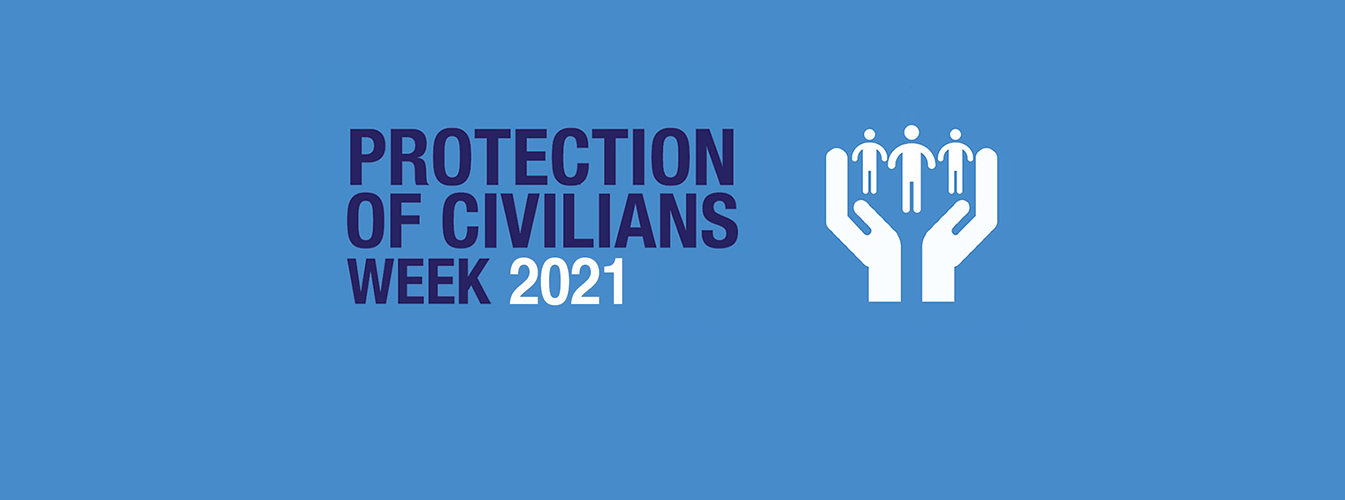PAX and 25 other leading organizations working on improving the Protection of Civilians in Armed Conflict (PoC) have called for the United Nations (UN), Member States, and armed actors to take urgent action in a joint statement published ahead of the annual Security Council (UNSC) open debate on PoC on 25 May.
Ambitious action must be taken to shift mindsets and invest in robust policies, strategies, and practices, to protect civilians caught in armed conflict. This includes:
- Prioritizing safe, meaningful, and inclusive engagement with conflict-affected communities and civil society in developing PoC strategies and measures to minimize civilian harm;
- Upholding PoC commitments through promotion and implementation of all applicable relevant legal and policy frameworks, including strengthening efforts for accountability for violations of international humanitarian and human rights law, and the creation of mechanisms for systematic tracking, analysis, and public reporting of civilian harm;
- Supporting a political declaration that would strengthen the protection of civilians from the use of explosive weapons with wide area effects; and
- Ensuring inclusive protection is at the heart of UN peace operations.
PAX side events to 2021 UNSC Open Debate on the Protection of Civilians
This year, PAX organized two virtual side events around the Security Council Open Debate and the release of the Secretary-General’s annual PoC report (also known as PoC week). The summary reports and recordings of the PAX virtual side events are available below.
Protecting the environment is protecting civilians
Armed conflicts contribute to environmental damage and conflict pollution. Attacks on industrial sites and other critical and environmental infrastructure can result in the exposure of civilians to toxic conflict pollutants and affect access to water infrastructure with resulting impacts on food and water security. In the long-term, the collapse of environmental governance can contribute to significant public health concerns and diminish capacities to limit the spread of communicable diseases, like COVID-19.
On 26 May, the Governments of Belgium, Costa Rica, Niger, Switzerland, and Vietnam, in partnership with the Joint UNEP/OCHA Environment Unit, Environmental Peacebuilding Association (EnPAx), and PAX convened a virtual side-event to the annual UNSC debate on the Protection of Civilians entitled “Protecting the Environment is Protecting Civilians: The Humanitarian Dimensions of the Environment, Peace and Security Agenda”. The event examined the detrimental impacts of conflict-related environmental damage on civilians, and explored the linkages between protecting the environment and protecting civilians in armed conflict. This included panel presentations discussing the impacts of conflict-related environmental damage on humanitarian operations and food and water insecurity, as well as the related impacts of environmental harm as a result of the use of explosive weapons in populated areas and attacks on essential water infrastructure.
A summary report of the event is available here.
Emerging practice in effective civilian harm mitigation
All security actors have a responsibility to protect civilians in armed conflicts under international humanitarian and human rights laws, and to ensure that they mitigate harm to civilians that could occur as a result of their presence, activities, and operations. In recent decades, efforts by national, regional, and international actors to improve the protection of civilians in armed conflict (PoC) have been partly driven by acknowledgment of the physical and psychological harm to civilians and civilian objects from the presence and results of their operations. While some actors may be unwilling or unable to assess the full extent of harm to civilians as a result of military and policing operations, others may lack practical guidance on navigating challenges such as mitigating reprisals against civilians, or planning for geographically remote or urban warfare, and considering long-term harm from reverberating effects.
On 27 May, the Governments of Afghanistan and the Kingdom of the Netherlands, in partnership with PAX, the Center for Civilians in Conflict (CIVIC), and the American Bar Association Center for Human Rights convened a virtual side event, entitled “Emerging practice in effective civilian harm mitigation”. A diverse group of expert panelists explored emerging practices in civilian harm mitigation focusing on current policies, frameworks, and tools from partnered military coalitions and international civilian protection strategies. Panelists also offered recommendations for improving systematic tracking, analysis, and reporting on civilian harm to inform efforts for civilian harm prevention, mitigation, and response by all armed actors and partnered security arrangements.
A French version of the video is available here.
Read more about PAX’s work on the Protection of Civilians and Conflict and Environment.




